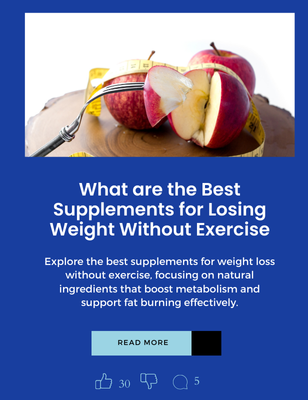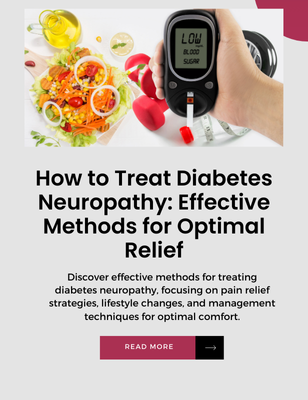Taking care of teeth is essential for maintaining good oral health.
Preventing cavities starts with understanding how tooth decay occurs and adopting effective daily habits.
By making small changes in diet and hygiene, everyone can significantly reduce their risk of developing cavities.
Saliva plays a critical role in protecting teeth and neutralizing acids from the food consumed.
Regular dental check-ups and the use of fluoride can further enhance protection against decay.
Simple adjustments in lifestyle and diet can make a big difference in keeping smiles healthy.
Key Takeaways
- Consistent oral hygiene is vital for preventing cavities.
- A balanced diet reduces the risk of tooth decay.
- Regular dental visits help maintain optimal oral health.
Understanding Tooth Decay and Cavities
Tooth decay happens when harmful bacteria damage teeth. Cavities are the result of this decay.
Knowing how enamel protects teeth and how cavities form is essential for maintaining dental health.
The Role of Enamel in Protecting Teeth
Enamel is the hard, outer layer of the teeth. It acts as a shield against decay. This strong substance is made mostly of minerals, primarily hydroxyapatite.
When enamel is healthy, it protects the softer layer underneath, called dentin.
If enamel wears away or becomes damaged, bacteria can enter and create cavities.
Factors that can weaken enamel include:
- Poor diet high in sugar and acids
- Lack of proper oral hygiene
- Dry mouth conditions
- Certain medical conditions
Taking care of enamel is crucial for preventing dental caries. Regular check-ups can help assess enamel health.
How Cavities Form and Progress
Cavities start with tooth decay caused by bacteria. These bacteria produce acids when they break down sugars.
Over time, these acids can erode enamel, leading to enamel loss.
As the decay progresses, the bacteria can reach deeper layers. Once enamel is damaged, they move to dentin. Dentin is less dense than enamel and can decay faster.
If not addressed, cavities can reach the pulp. The pulp contains nerves and blood vessels. At this stage, pain may occur, and more dental treatment is needed.
Good oral hygiene and regular dental visits can help spot cavities early. Taking action promptly is key to preventing serious damage.
The Importance of Saliva and Diet
Saliva plays a crucial role in keeping teeth healthy. A balanced diet can also affect oral health, especially when it comes to cavities.
Saliva as a Natural Defense Against Cavities
Saliva helps wash away food particles and sugar. It acts as a buffer against acid that comes from sugary and acidic foods and drinks.
When sugar is consumed, bacteria in the mouth produce acid. This acid can harm tooth enamel, leading to cavities.
Saliva contains important minerals like calcium and phosphate. These help to strengthen teeth and repair early signs of decay.
Staying hydrated is vital for saliva production. If someone does not drink enough water, saliva flow may decrease, allowing harmful bacteria to thrive.
Dietary Choices and Their Impact on Oral Health
Diet plays a key role in cavity prevention.
Foods high in sugar, such as candies and sugary drinks, can quickly lead to tooth decay. Sugary snacks can stick to teeth, giving bacteria more time to create acid.
Acidic drinks, like soda and certain fruit juices, also increase the risk of cavities. These drinks can weaken tooth enamel.
It is important to limit these types of foods and drinks.
Instead, choosing fresh fruits, vegetables, and whole grains can help maintain oral health.
Keeping a balanced diet, along with proper hydration, supports not only overall health but also dental health.
Regular Oral Hygiene Practices
Maintaining good oral hygiene is crucial for preventing cavities.
Key practices include effective brushing techniques, the role of flossing, and selecting the right toothpaste and mouthrinse.
Brushing Techniques and Their Effectiveness
Brushing is the first line of defense against cavities.
To brush effectively, use a soft-bristle toothbrush and fluoride toothpaste. The ideal brushing technique involves holding the toothbrush at a 45-degree angle to the gums.
Gentle, circular motions are best.
Brush for at least two minutes, covering all surfaces: outer, inner, and chewing surfaces. Pay special attention to back teeth where plaque builds up more.
Replace the toothbrush every three to four months or when bristles are frayed.
A consistent brushing routine can significantly reduce dental plaque and the risk of cavities.
The Critical Role of Flossing in Preventing Tooth Decay
Flossing is just as important as brushing. It removes food particles and plaque from between teeth where a toothbrush can’t reach.
For effective flossing, use about 18 inches of dental floss. Wrap it around the middle fingers and use your thumbs to guide it.
Gently slide the floss between your teeth, making a C shape around each tooth.
Flossing should be done once daily.
Regular flossing can help prevent gaps where bacteria can thrive, reducing the chance of cavities and gum disease.
Choosing the Right Toothpaste and Mouthrinse
Selecting the right toothpaste is essential.
Look for toothpaste that contains fluoride, which helps strengthen tooth enamel.
Some toothpastes offer extra benefits, like whitening or sensitivity relief. It’s important to choose one that meets individual needs.
Mouthrinse can also play a role.
An antimicrobial mouthwash can help reduce plaque and freshen breath.
Using mouthwash after brushing and flossing can provide additional protection against cavities, making it an effective part of a daily oral hygiene routine.
Fluoride’s Role in Cavity Prevention
Fluoride is an important mineral that helps protect teeth from cavities. It works by strengthening tooth enamel and can be found in various sources like water and toothpaste. Fluoride treatments can also provide additional protection.
How Fluoride Reinforces Tooth Enamel
Fluoride helps rebuild and strengthen tooth enamel. Enamel is the hard, outer layer of teeth that protects against decay.
When fluoride is applied, it gets absorbed into the enamel, making it more resistant to acid attacks from bacteria in the mouth.
Fluoride also helps remineralize areas of enamel that have started to decay. This process can stop a cavity from forming.
The presence of fluoride reduces the ability of bacteria to produce acids that harm teeth.
Fluoride Treatments and Their Benefits
Fluoride treatments are professional applications used to enhance dental health. These treatments are usually more concentrated than regular toothpaste. Dentists often apply them during check-ups.
There are different types of fluoride treatments, including gels and varnishes. These can provide stronger protection for individuals at high risk for cavities.
Benefits include a decrease in cavity formation and improved enamel strength.
Fluoridated water is another common source of fluoride. Many communities add fluoride to public water supplies, which supports dental health for everyone. Regular use of fluoride toothpaste also ensures daily protection against cavities.
Professional Dental Care
Regular visits to the dentist play a vital role in preventing cavities. These visits include check-ups and professional cleanings that help maintain good dental hygiene.
The Necessity of Regular Dental Check-Ups
Visiting the dentist for regular check-ups is essential for everyone. These appointments typically happen every six months.
During these visits, the dentist examines the teeth for signs of cavities or other issues. They can catch problems early, which helps avoid more serious issues later.
A thorough examination also includes checking the gums and mouth for any changes.
It’s important for patients to communicate openly with their dentist. This includes discussing any concerns or changes in oral health.
Regular check-ups ensure that dental hygiene remains strong and any necessary treatments are administered promptly.
Professional Cleaning and Its Advantages
Professional cleaning is another key service offered by dentists.
During these appointments, a dental hygienist uses special tools to remove plaque and tartar that regular brushing may miss.
These cleanings help prevent cavities by ensuring that the teeth and gums are healthy. They also polish the teeth, which can improve their appearance.
Professional cleaning can help spot early warning signs of potential issues.
Dental hygienists often provide personalized tips for maintaining good dental hygiene at home. This guidance can be valuable in developing better habits and preventing cavities.
Regular professional cleanings are an investment in long-term oral health, making it easier for individuals to keep their teeth for life.
Dental Sealants and Their Effectiveness
Dental sealants are a helpful tool in preventing cavities, especially in children. They create a barrier on the chewing surfaces of teeth. This section discusses how sealants work to protect against early cavities.
How Sealants Protect Against Early Cavities
Sealants are usually made of a thin coating of plastic that is applied to the back teeth, or molars. These teeth have grooves where food can get stuck.
Sealants fill these grooves and create a smooth surface, making it harder for plaque and food particles to cling to the teeth. This reduces the risk of developing cavities.
Studies show that dental sealants can lower the chance of cavities by up to 80% in children.
They are especially effective when applied soon after the permanent molars come in, usually around ages 6 and 12. Regular check-ups help ensure sealants are intact for maximum protection.
Lifestyle Adjustments to Reduce Risk
Making specific changes to daily habits can help reduce the risk of cavities. Two important areas to consider are managing dry mouth and understanding the harmful effects of tobacco on oral health.
Managing Dry Mouth for Optimal Oral Health
Dry mouth, or xerostomia, can increase the risk of cavities. Saliva helps wash away food particles and neutralizes acids. When saliva production is low, it can lead to tooth decay.
To manage dry mouth, individuals can try several strategies:
- Stay Hydrated: Drink plenty of water throughout the day.
- Chew Sugar-Free Gum: This stimulates saliva production.
- Use Mouthwash: A mouthwash designed for dry mouth can be beneficial.
- Humidify the Air: Using a humidifier at night can help.
Regular dental check-ups are also essential. Dentists can offer additional advice and treatment options for severe cases of dry mouth.
The Impact of Tobacco on Oral Bacteria and Health
Tobacco use is linked to numerous health issues, including an increased risk of cavities.
Smoking can alter the mouth’s environment and promote harmful bacteria growth. This can lead to gum disease and tooth loss, compounding cavity risks.
Quitting smoking offers many benefits for oral health, such as:
- Reduced Bacterial Growth: Healthier oral flora leads to fewer cavities.
- Improved Healing: Smoking can slow down the healing of gum tissues.
- Better Taste and Smell: Quitting can enhance taste perception, making healthy food choices more appealing.
Support systems, such as counseling or nicotine replacement therapies, can help individuals quit smoking. This adjustment can lead to a healthier mouth and lower risk of cavities.
The Role of Sugar Alternatives in Oral Care
Sugar alternatives play an essential role in preventing cavities and promoting oral health. They help reduce the amount of harmful sugars in the diet, which can lead to tooth decay.
Two key areas to consider are xylitol’s benefits and the importance of choosing the right chewing gum and staying hydrated.
Xylitol and Its Benefits
Xylitol is a sugar alcohol that can be found in various products. It has been shown to help in reducing cavity-causing bacteria in the mouth.
When people consume xylitol, it can lower acidity levels in saliva, creating a less favorable environment for bacteria.
Using xylitol can also increase saliva production. More saliva helps wash away food particles and keeps teeth clean.
Xylitol is often found in sugar-free gum and candies, making it a popular choice for oral care.
Selecting products that contain xylitol can be beneficial for daily oral hygiene. It is important to note that while xylitol is helpful, it should be consumed in moderation to avoid digestive issues.
Choosing Healthy Chewing Gum and Hydration
When selecting chewing gum, it is best to choose sugar-free options. These gums often contain xylitol, which provides dental benefits.
Chewing gum increases saliva flow, which is essential for neutralizing acids from food and drink.
Staying hydrated is equally important for oral health. Drinking plenty of water helps wash away leftover food and bacteria. Water also aids in maintaining saliva production, which protects the teeth.
In summary, focusing on sugar-free gum and staying hydrated can significantly support oral care efforts. These choices, combined with xylitol, help create a healthier mouth environment that can prevent cavities.
Strategies for Managing Emergency Dental Issues
When dental emergencies arise, it is crucial to act quickly and understand the symptoms to determine the right steps. Addressing issues like toothaches and recognizing the need for treatments can greatly impact dental health.
Addressing Toothache and Signs of Cavities
A toothache can indicate various problems, including cavities. Symptoms may include sharp pain, sensitivity to hot or cold, or pressure when biting. It’s important to identify these signs early.
- Immediate Relief: Over-the-counter pain relievers can help. Apply a cold compress to the outside of the cheek to reduce swelling and pain.
- Dental Assessment: A dentist should assess for cavities. Untreated cavities can worsen and lead to more serious issues. Regular check-ups can help prevent painful conditions.
If a tooth is sensitive or painful, it may require a filling. A filling is used to repair a cavity and can alleviate discomfort.
Understanding When Fillings, Root Canals, or Extractions Are Necessary
Knowing when a filling is not enough is essential. If decay reaches the tooth pulp, a root canal may be required. This procedure cleans out infected material and can save the tooth.
- Signs for Root Canal: Intense pain, prolonged sensitivity, or swelling indicates a possible need for this treatment.
- Tooth Extraction: If a tooth is severely infected or damaged beyond repair, extraction might be the only option.
Understanding these dental treatments can guide individuals in managing urgent situations effectively. Seeking professional care is important for long-term oral health.
The Connection Between Oral and Overall Health
Good oral health plays a crucial role in general health. There are clear links between dental problems and issues in other parts of the body. Two key areas of concern include gingivitis and heart health.
Gingivitis as an Indicator of Oral Health Issues
Gingivitis is a common gum condition. It occurs when plaque builds up on teeth, leading to inflammation. If not treated, it can cause gum disease.
Signs of gingivitis include:
- Red, swollen gums
- Bleeding while brushing
- Bad breath
These symptoms indicate that oral health is poor. Research shows that untreated gingivitis may lead to tooth loss. It can also be a sign of other health problems.
When gingivitis occurs, it can act as a warning. People with diabetes and other conditions may see worsening symptoms with poor oral care. This highlights the need for regular dental check-ups and good hygiene.
How Oral Health Affects the Cardiovascular System
Oral health is linked to heart health. Bacteria from gum infections can enter the bloodstream. This may lead to inflammation, which is a risk factor for heart disease.
Studies show that people with periodontal disease are more likely to have cardiovascular problems. The inflammation in the gums can affect blood vessels. This connection suggests that maintaining gum health is important for heart health.
To lower risks, individuals should focus on:
- Brushing teeth twice daily
- Flossing regularly
- Using mouthwash
Ensuring that teeth and gums are healthy can support overall physical health. Calcium also plays a role in strengthening teeth and bones. A healthy diet rich in calcium can help maintain good oral health and prevent issues down the line.
Frequently Asked Questions
Preventing cavities involves various strategies for people of all ages. Effective methods focus on daily habits, dietary choices, and specific treatments.
What are effective strategies for preventing cavities in children?
To prevent cavities in children, parents should encourage brushing teeth twice a day with fluoride toothpaste. Establishing a routine that includes flossing and regular dental check-ups is important. Limiting sugary snacks and drinks also plays a key role.
Are there natural methods to help prevent the development of cavities?
Natural methods include using xylitol, a sugar substitute that can decrease bacteria levels in the mouth.
Additionally, maintaining a balanced diet rich in vitamins and minerals supports oral health. Chewing sugar-free gum can also promote saliva production, which helps neutralize acids.
How can adults safeguard their teeth against cavity formation?
Adults can protect their teeth by brushing with fluoride toothpaste and flossing daily. Regular visits to the dentist for cleanings and check-ups help catch issues early. They should also be mindful of their diet and limit sugary foods.
Can the progression of a cavity be halted after it has begun?
In some cases, early cavities can be reversed with proper treatment. Regular fluoride treatments can strengthen tooth enamel and help stop decay. However, larger cavities typically require dental intervention.
Which dietary choices can minimize the risk of tooth decay and cavities?
Eating a diet rich in fruits, vegetables, whole grains, and dairy products supports dental health. Reducing sugar intake, especially from sugary drinks and snacks, is crucial. Drinking plenty of water, especially fluoridated water, can also aid in cavity prevention.
What daily dental care practices are most beneficial in preventing cavities?
Daily dental care should include brushing teeth twice a day and flossing at least once. Using mouthwash can add an extra layer of protection.
Establishing a routine and staying consistent is essential for good oral hygiene.

















